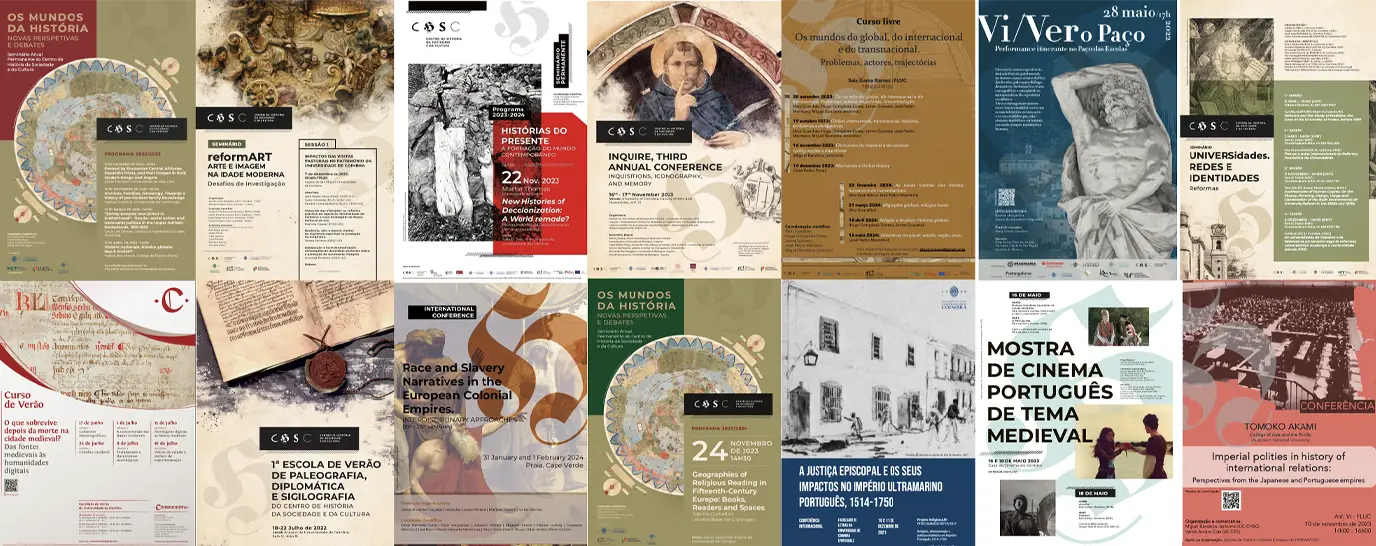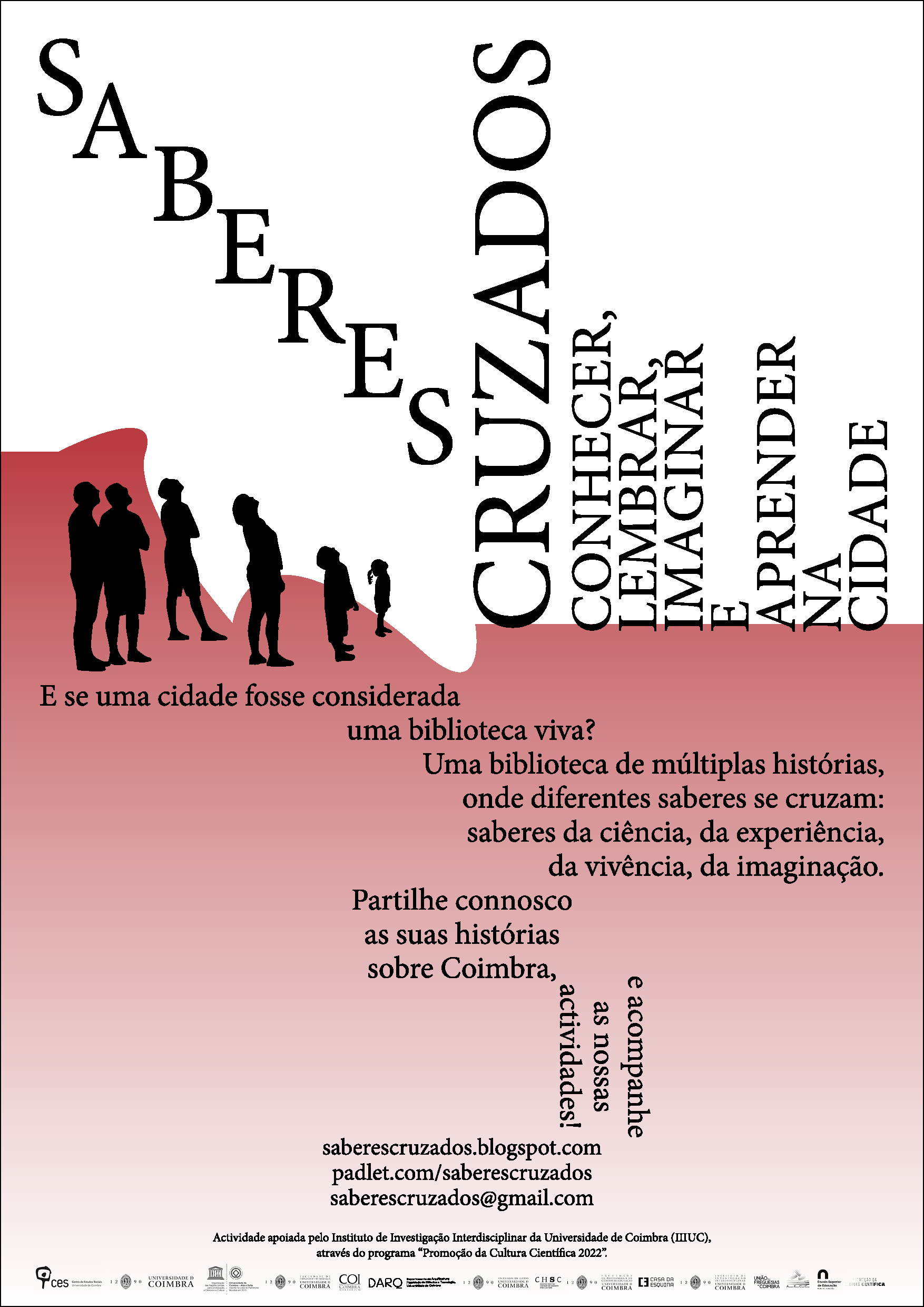
Crossed knowledge: knowing, remembering, imagining and learning in the city: short training course

In this training session we will present and discuss results of recent and ongoing research on the history of the city of Coimbra, from medieval times to the present day, and the results of a pilot project developed with a high school class in which participatory and collaborative methodologies were applied to co-produce knowledge following a citizen science approach.
The training is part of the initiative “Crossed knowledges: knowing, remembering, imagining and learning in the city“, which was born from the will to value cities as living libraries, where different types of knowledges cross: knowledges of science, of experience, of living, of imagination. Libraries with multiple stories that must also be recognised as a valuable educational resource.
The aim is that cities – and spaces – can be a stage for multiple learning, and for encounters between the university and schools and kindergartens.
Contents: Medieval collegiate societies; territorial and social analysis of parishes; patrimony of the City and the University of Coimbra; Medieval Era; Modern Period; Local History; municipal finances and the University of Coimbra; local power and daily life of the city; affective objects and personal narratives of children’s memories; active listening; personal memory and collective memory; affective map of the community; alterity and diversity; citizen participation; artistic creation; science and art; creativity and critical reflection; environmental anthropology; cultural practices; human rights and cognitive justice; action research; knowledge production and circulation; co-production of knowledge; active learning; context-based learning; collaborative learning communities; engaged citizen social science; citizen science and education.
Methodology: Following the spirit of “crossed knowledges”, we intend to create a space for dialogue between the results of recent research projects of teachers and researchers of the University of Coimbra and the scientific and pedagogical knowledge of educators and teachers from pre-school to secondary school. In this way, the methodology adopted foresees oral presentations, debates and hands-on activities which contribute to the collaborative creation of a manual of good practices in the implementation of citizen science strategies in educational contexts.
Target audience: primary and secondary school teachers, kindergarten teachers
Trainers: Maria Amélia Campos, José Luís Barbosa (CHCS, FLUC), Maria José Ferro (FPCEUC), Jorge Cabrera (DArq, CAPC), Cláudia Pato de Carvalho, Joana Sousa, Denise Esteves, Rita Campos (CES-UC)
This activity is accredited as a Short Training Course by the Nova Ágora Training Centre.
Registration is free but compulsory, made in the Portal of Nova Ágora CFAE Training
Places: 20
Registration period: 6th to 28th February 2023
Venue: Sala 1, Ces | Alta | 10am to 1pm
Training conducted in partnership with the Working Group on Citizen Science and Education